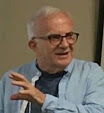Tzedek, tzedek, tirdof
"Justice, justice, shall you pursue.”
Celia Amster Bader was the first American-born child in a family of Austrian Jewish immigrants. She was born just four months after her mother arrived on these shores. Her daughter, Ruth Bader Ginsburg (RBG), often noted that her mother was “conceived in the Old World and born in the New”.
An Orthodox Jew, Celia kept a list of “women of valor” — Biblical women who impacted the world for the better, women such as Sarah, Deborah, Miriam, etc. RBG memorized their stories. Celia expected “valor” and excellence in her daughter too, and RBG received a first-class, yeshiva-worthy education. "My mother told me to be a lady," said RBG. For her, that meant to be your own person. Be independent."
When RBG entered high school, her mother was diagnosed with cancer. She died just two days before Ruth’s graduation - an eerie foreshadowing of the timing of RGH’s own battle with terminal cancer. “When my mother died,” RBG commented, “the house was filled with women, but only men could participate in the minyan….” Because she was a girl, she was not permitted to recite Kaddish -- the traditional Jewish mourners’ prayer. She was indignant; she felt it was an affront to her mother. “That time was not a good one for me in terms of organized religion,” she recalled.
Yet a gold mezuzah hung on the doorframe of her office, given by a yeshiva in Brooklyn. She was enormously generous to Jewish causes. A framed lithograph of the Hebrew command, “Tzedek, tzedek, tirdof — Justice, justice, shall you pursue” Deuteronomy 16:20) also hung in her office. The exceptional rarity of a repeated word in the Torah gives these words added significance.
Even the collar (jabot) she wore for the court’s opening session had a special Hebrew inscription. Woven in silk by the Jewish artist Marcy Epstein, it reads along its edge, “Tzedek, Tzedek,” evoking “Tzedek, tzedek tirdof.”
In 2015, RBG was asked by the Jewish World Service to write for its Passover Haggadah. She chose texts about women and the roles women played in the Exodus narrative. She included the Pharaoh’s daughter, Moses' sister Miriam, the midwives, Shifra and Puah, and others.
There were many non-Biblical “women of valor” on RBG’s list. Eleanor Roosevelt was one; another was Emma Lazarus. The latter's poem, ‘The New Colossus,’ is etched on the base of the Statue of Liberty. That poem has welcomed legions of immigrants, RBG commented, including her own family — “people seeking shelter from fear, and people longing to find freedom from intolerance.”
I’m sure her own mother was on that list. RBG once asked, rhetorically, what is the difference between a bookkeeper in New York City’s garment district and a Supreme Court Justice? “One generation,” she said. “My own life bears witness to the differences of opportunities available to my mother and those afforded me.” Many opportunities were available to her because her mother struggled and sacrificed to make them possible.
A young Jewish woman wrote that RBG, “…represented the country we wanted to believe we were in. She overcame misogyny, patriarchy, and antisemitism to be the first Jewish woman to sit on the Supreme Court. She fought for us and for so many people, for a more equitable and just America. She did it while having a marriage and children. She became a holy talisman… (She is) a holy reminder of what this country could be and of what we can achieve...”[i]
To me, Ruth Bader Ginsburg is an exemplar of American patriotism. She embodied the best of our country. She is the most complete and compelling example of what it means to be a human being.
Celia Amster Bader, you must be very proud. Thank you.
by Gilbert Friend-Jones
[i] Carly Pildis, “May her memory be a revolution: We are all notorious now”, in The Forward, September 19, 2020.













No comments:
Post a Comment